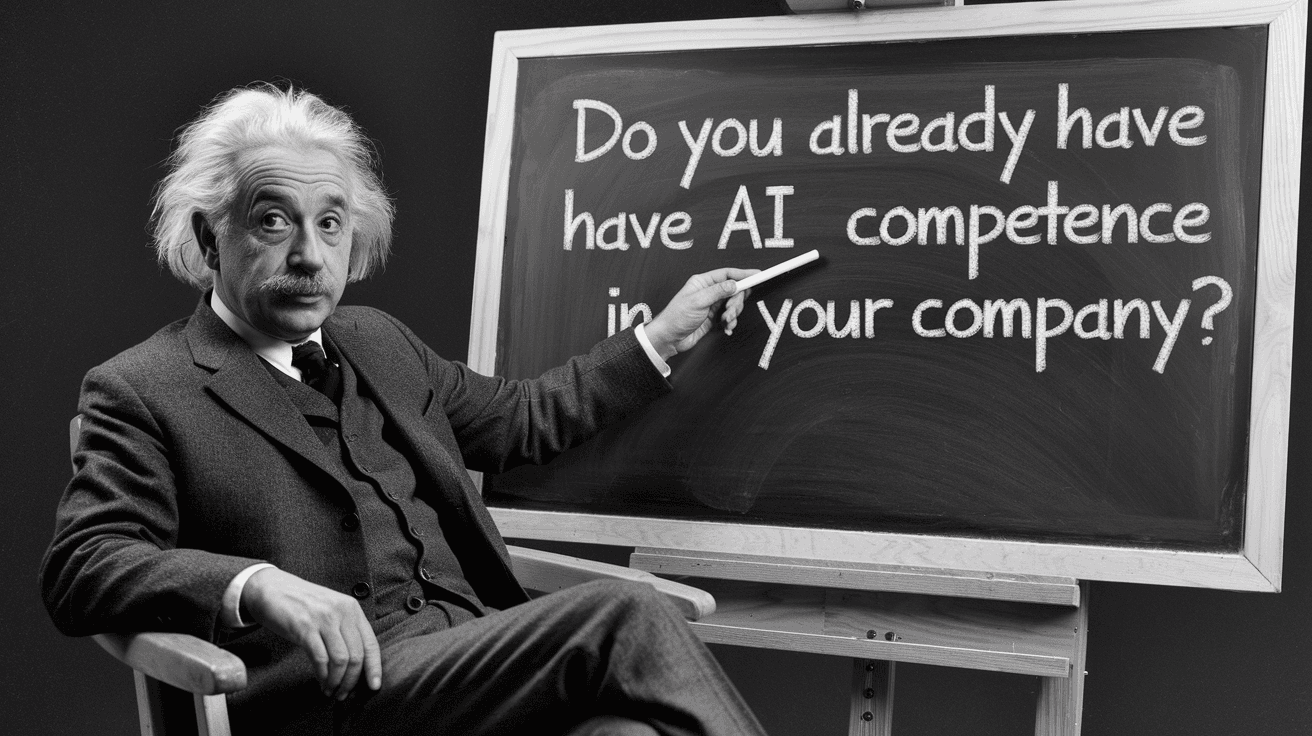From February 2, 2025, organizations that provide or deploy AI systems within the European Union will face a new legal obligation under Article 4 of the EU AI Act. This provision mandates that companies "take measures to ensure, to the best of their ability, that their personnel and other persons involved in the operation and use of AI systems on their behalf have a sufficient level of AI competence". This requirement applies across the entire AI value chain, affecting both developers and users of AI technologies1.
Executive Summary: AI Competence in the EU AI Act
Starting February 2, 2025, organizations deploying or providing AI systems in the European Union must comply with Article 4 of the EU AI Act, which mandates that all personnel involved in AI operations possess sufficient AI competence. This regulation applies to the entire AI value chain, ensuring that both developers and users of AI technologies have the necessary skills, knowledge, and awareness to handle AI responsibly.
Key Requirements & Strategic Implications
- AI Literacy as a Legal Obligation: Companies must assess, train, and document AI competence across their workforce, including non-technical staff who interact with AI systems.
- Risk-Based Approach: The AI Act categorizes AI systems based on their potential impact, requiring stricter competence levels for high-risk applications in healthcare, law enforcement, and infrastructure.
- Strategic Implementation: Organizations should conduct an AI inventory, assess skills gaps, develop role-specific training programs, and establish governance mechanisms to ensure ongoing compliance.
- Leadership & AI Strategy Alignment: Executives and managers play a crucial role in fostering an AI-literate organization, ensuring that AI initiatives are strategic, ethical, and aligned with business objectives.
The legal text clearly emphasizes that AI literacy isn't optional—it's a fundamental requirement designed to ensure that organizations can harness AI's benefits while minimizing potential risks. According to the EU AI Act, "AI literacy" encompasses the "skills, knowledge and understanding that allow providers, deployers and affected persons to make an informed deployment of AI systems, as well as to gain awareness about the opportunities and risks of AI and possible harm it can cause"1. The scope extends beyond technical teams to potentially include anyone involved with AI systems within your organization.
What Constitutes "Sufficient AI Competence"?
For executives and decision-makers, understanding what constitutes "sufficient AI competence" is crucial for effective implementation. The AI Act doesn't provide a one-size-fits-all definition, recognizing that requirements will vary based on multiple factors. When determining appropriate competence levels, your organization must consider the technical knowledge, experience, education, and training of relevant staff, as well as the specific context in which AI systems will be used.
The requirement goes well beyond basic technical understanding. A comprehensive approach to AI competence should include understanding how your organization's AI systems function and their impact on business processes, the ability to identify, assess, and mitigate potential risks associated with AI deployment, knowledge of regulatory compliance requirements and how to implement them, documentation capabilities to demonstrate compliance efforts, and awareness of ethical implications and potential biases in AI systems1.
It's important to note that these competence requirements aren't static—they must evolve as AI technologies and their applications within your organization change.
A Risk-Based Approach: Varying Requirements Based on AI Classification
The EU AI Act takes a risk-based approach to regulation, categorizing AI systems based on their potential impact. This classification directly affects the depth and breadth of AI competence required within your organization2.
For high-risk AI systems—those used in critical areas such as healthcare, law enforcement, critical infrastructure, and education—the competence requirements are particularly stringent. Organizations deploying such systems must implement comprehensive training programs that cover technical aspects, risk management, data protection, ethical considerations, and legal obligations.
For systems classified as "limited risk," such as customer service chatbots or certain data analysis tools, the requirements are less intensive but still significant. Basic training on transparency requirements and potential risks remains necessary.
Even for minimal risk AI applications, while formal training requirements are not explicitly mandated under the Act, prudent organizations should still consider basic awareness training to ensure responsible use of these technologies2.
Strategic Implementation for Your Organization
As an executive or decision-maker, approaching the AI competence requirement strategically is essential. Rather than viewing it as merely a compliance exercise, consider it an opportunity to strengthen your organization's AI capabilities and competitive positioning.
While the EU AI Act doesn't mandate the appointment of a dedicated AI Officer, establishing clear responsibility for AI governance is advisable. This could involve creating a new position or distributing responsibilities among existing departments, provided that accountability is clearly defined and documented.
Effective implementation requires a multifaceted approach that includes conducting an AI inventory to identify all AI systems within your organization and their risk classifications, assessing current staff competence levels against the requirements for each system, developing tailored training programs that address identified gaps, implementing ongoing assessment mechanisms to ensure continued compliance, and documenting all efforts to demonstrate "best extent" compliance as required by the regulation.
This proactive approach not only ensures regulatory compliance but also positions your organization to leverage AI more effectively and responsibly.

Preparing for February 2025: Your Next Steps
The February 2025 deadline for AI competence compliance may seem distant, but developing comprehensive AI literacy across an organization requires time and strategic planning. As a business leader, your actions now will determine your organization's readiness when the requirement takes effect.
The EU AI Act is the first comprehensive regulation on AI by a major regulator anywhere, and like the EU's General Data Protection Regulation (GDPR), it could become a global standard affecting organizations worldwide2. Understanding its requirements now will position your organization advantageously in an increasingly regulated AI landscape.
At nAIxt Technologies GmbH, we specialize in helping organizations navigate the complex landscape of AI regulation and implementation. Our expert consulting services provide tailored strategies for building AI competence that not only meets regulatory requirements but also enhances your competitive advantage through responsible AI deployment.
Don't wait until the deadline approaches—begin your AI competence journey today. Contact nAIxt Technologies GmbH for a comprehensive AI readiness assessment and let our specialists help you develop a strategic roadmap for building the AI competence your organization needs to thrive in the new regulatory landscape. Our AI leadership training programs are specifically designed to help leaders like you transform regulatory requirements into strategic opportunities.
The future of AI is regulated—but with the right partner, it's also full of possibility. Let's navigate it together.
For more information about our AI leadership training services, visit https://www.naixt-technologies.de/services/ai-leadership-training/ 3
